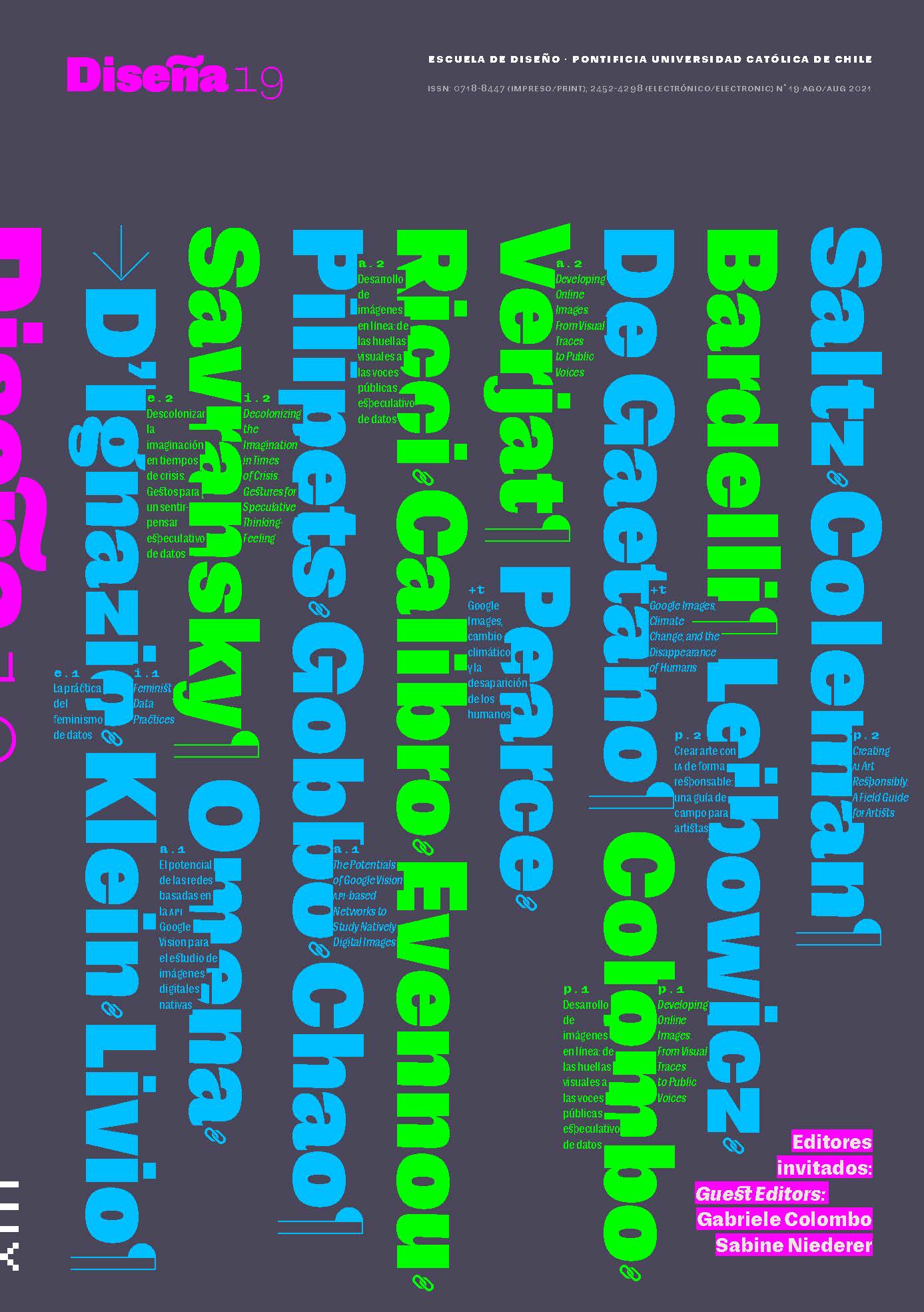Feminist Data Practices: Conversations with Catherine D’Ignazio, Lauren Klein, and Maya Livio
Main Article Content
Abstract
Many of the papers and more-than-textual proposals submitted for this special issue included machine vision technologies and other data- and AI- mediated practices. To provide a critical perspective on data-driven (design) research, we decided to explore the emerging field of data feminism through online interviews with three scholars and practitioners who apply intersectional feminist theory and practice to the realm of data-driven work: Catherine D’Ignazio, Lauren Klein, and Maya Livio.
With Catherine D’Ignazio and Lauren Klein, authors of the book Data Feminism (2020), we touch upon the idea of data feminism as a way of thinking about (and acting upon) data and data science, informed by intersectional feminist thinking. From examining and challenging power structures in the data collection process to embracing pluralism beyond binaries and hierarchies, they outline a research program that clarifies why and how data science needs intersectional feminism. With them, we discuss how art and (speculative) design practices can make power imbalances visible. We also discuss the limitations and advantages of participatory data practices and the responsibility that lies upon data collectors when making visible an issue through data can cause more harm than good to those affected by it. We discuss how sometimes one needs to reject ground rules of data visualization to pursue higher political goals beyond simple analytical needs. We conclude this conversation with an invitation to embrace complexity when applying feminist principles to data work, while being aware of our personal standpoints and limitations.
With Maya Livio, researcher and curator at the University of Colorado Boulder, we discuss how an intersectional feminist approach to data science can also consider more-than-human beings. We talk about her work on animal interfaces, in which she explores how the contact points between the human and more-than-human worlds are permeated with technology. Maya Livio then takes us through her experiences in feminist labs, explaining how the first step of incorporating a feminist practice is to take stock of and codify the work being done, cultivating attention towards (often unspoken or unwritten) methods and practices. We also discuss how she and her colleagues developed a framework for operationalizing the art of noticing as a methodological contribution. Finally, we touch upon her personal research approach, characterized by a mix of experimental multidisciplinary practices, moving from writing to curating to design and art-making.
Article Details

This work is licensed under a Creative Commons Attribution-ShareAlike 4.0 International license.
COPYRIGHT NOTICE
All contents of this electronic edition are distributed under the Creative Commons license of "Attribution-ShareAlike 4.0 Internacional" (CC-BY-SA). Any total or partial reproduction of the material must mention its origin.
The rights of the published images belong to their authors, who grant to Diseña the license for its use. The management of the permits and the authorization of the publication of the images (or of any material) that contains copyright and its consequent rights of reproduction in this publication is the sole responsibility of the authors of the articles.

